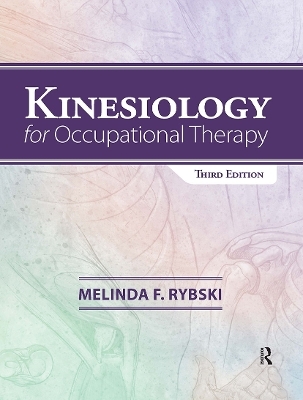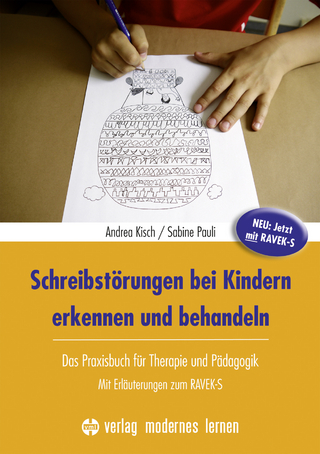
Kinesiology for Occupational Therapy
Routledge (Verlag)
978-1-032-95367-0 (ISBN)
- Noch nicht erschienen (ca. November 2024)
- Versandkostenfrei innerhalb Deutschlands
- Auch auf Rechnung
- Verfügbarkeit in der Filiale vor Ort prüfen
- Artikel merken
New in the Third Edition:
Content closely follows AOTA’s Occupational Therapy Practice Framework and Occupational Therapy Vision 2025
Updated and more extensive provision of evidence that summarizes key findings in current literature
New theories are presented in the Intervention sections
Extensive, joint specific and theory-based assessments are provided
Interventions described are occupation-based, process-based
Kinesiology concepts presented in a practical, useable way
Expanded chapters for Spine and Thorax and Hip and Pelvis.
Included with the text are online supplemental materials for faculty use in the classroom.
Kinesiology for Occupational Therapy, Third Edition clearly outlines the need for an understanding of kinesiology in occupational therapy, providing occupational therapists with the evidence necessary to support their intervention strategies.
Melinda F. Rybski, PhD, MS, OTR/L, is an Emeritus faculty member of the Occupational Therapy Division at The Ohio State University in Columbus. Dr. Rybski graduated from The Ohio State University College of Allied Medical Professions with a bachelor of science degree in 1979 and a master’s degree in 1987. She completed her PhD in 2010 with a degree from The Ohio State University, focusing on quantitative research, evaluation, and measurement. She has taught occupational therapy students for over 25 years, with a primary focus on kinesiology, physical disabilities, and the practice of occupational therapy and Level I fieldwork. She has also taught or assisted with other occupational therapy courses, including Application of Neurodevelopmental Construct, Practice of Occupational Therapy in the Hospital Setting, Interpersonal Dynamics and Task-Oriented Groups in Occupational Therapy, Occupational Therapy in Mental Health, Introduction to Alternative Research Methodologies, and Critical Phases of Life. Her clinical experience includes inpatient rehabilitation and acute, outpatient, and long-term care.
Acknowledgments About the Author Contributing Authors Preface Section I Foundational Knowledge Chapter 1 Occupational Therapy Conceptual Foundations Chapter 2 Kinesiology Concepts Chapter 3 Range of Motion Chapter 4 Factors Influencing Strength Section II Normal Joint Movement Chapter 5 The Shoulder Chapter 6 The Elbow Chapter 7 The Wrist Chapter 8 The Hand Chapter 9 Posture Chapter 10 The Hip and Pelvis Chapter 11 The Knee, Ankle, and Foot Section III Intervention Chapter 12 Biomechanical Intervention Approach Chapter 13 Rehabilitation Approach Chapter 14 Occupational Adaptation Practice Model Chapter 15 Motor Control and Motor Learning, Financial Disclosures Index
| Erscheint lt. Verlag | 4.11.2024 |
|---|---|
| Verlagsort | London |
| Sprache | englisch |
| Maße | 216 x 279 mm |
| Gewicht | 1080 g |
| Themenwelt | Medizin / Pharmazie ► Physiotherapie / Ergotherapie ► Ergotherapie |
| ISBN-10 | 1-032-95367-5 / 1032953675 |
| ISBN-13 | 978-1-032-95367-0 / 9781032953670 |
| Zustand | Neuware |
| Haben Sie eine Frage zum Produkt? |
aus dem Bereich


